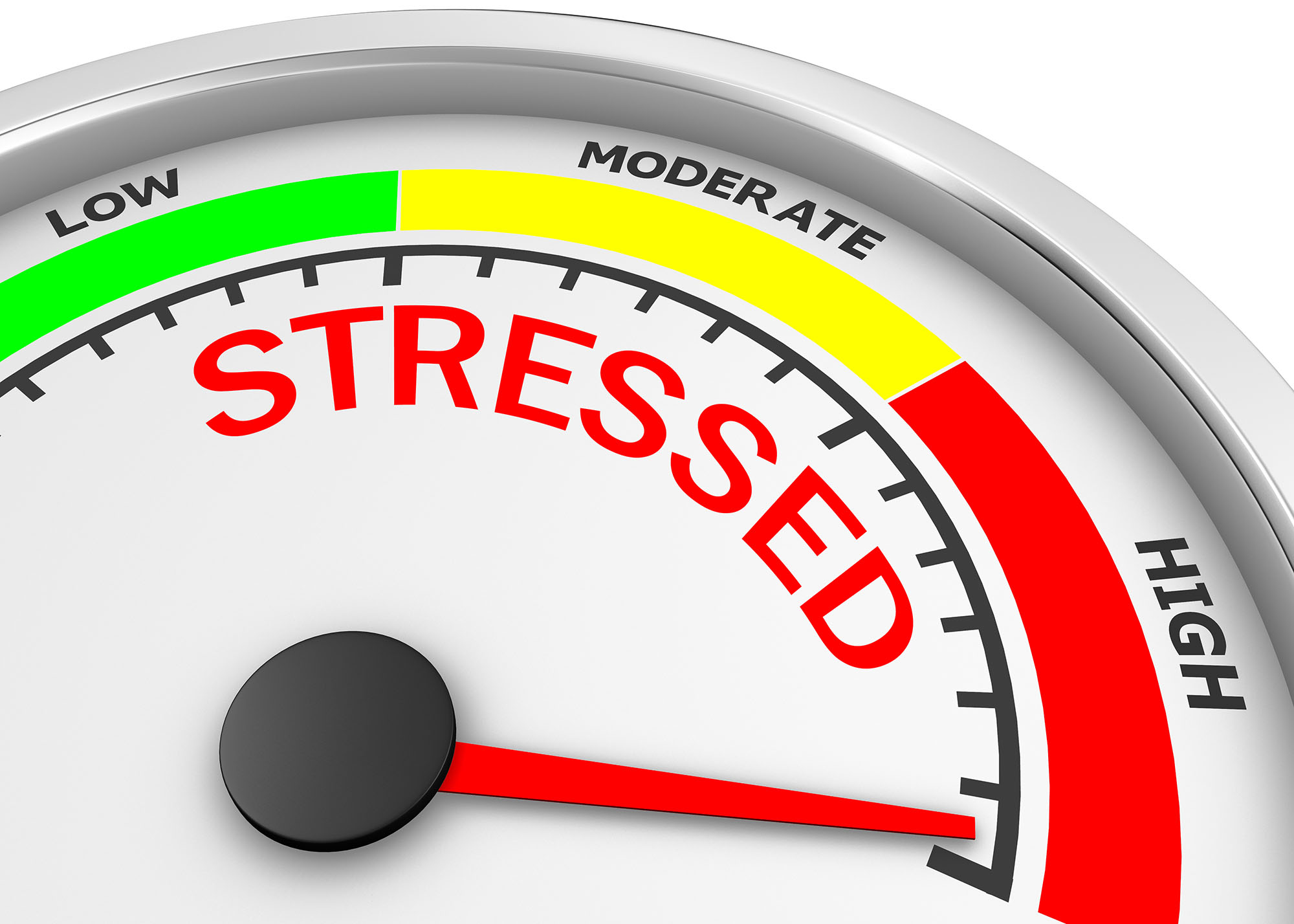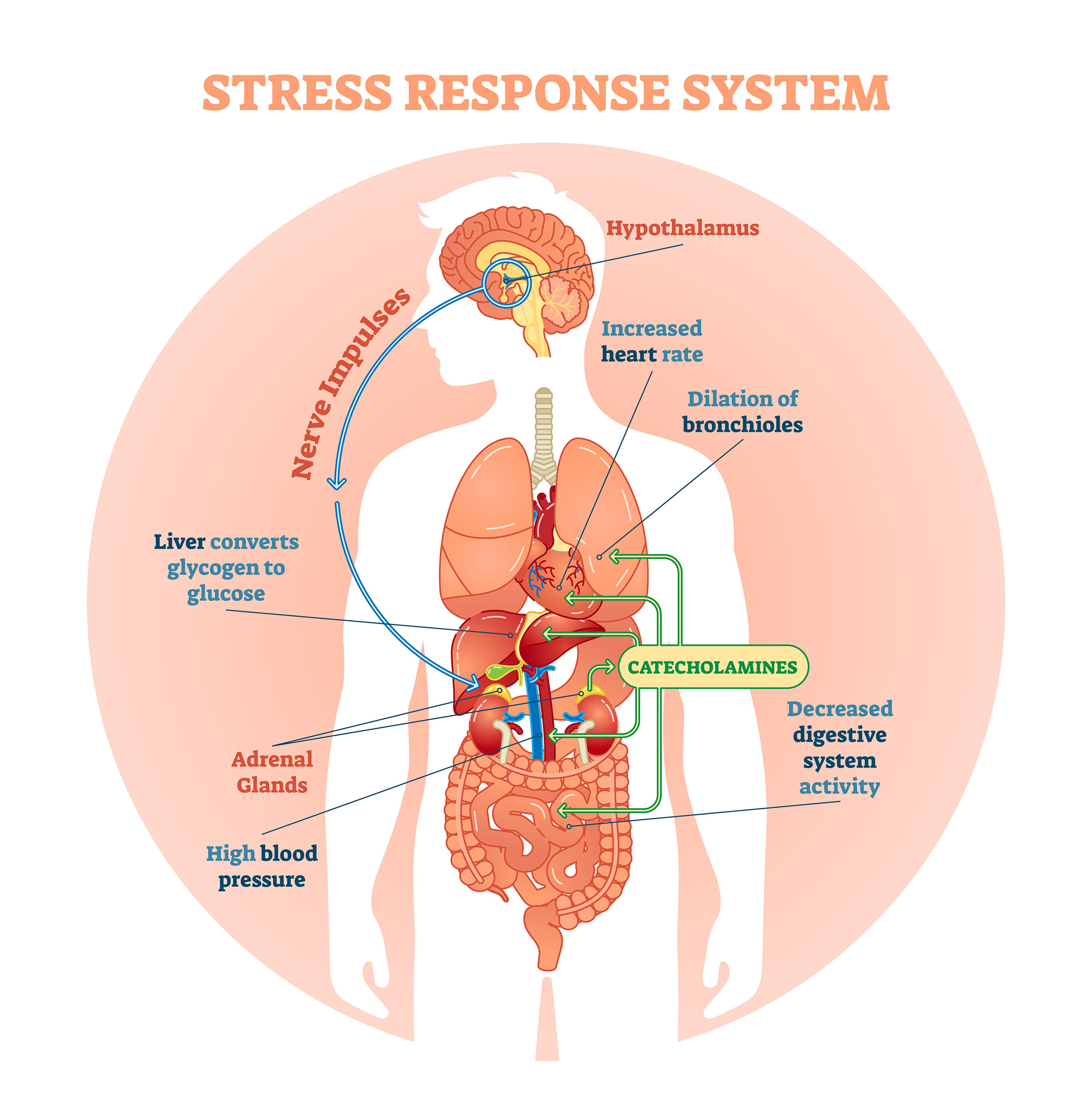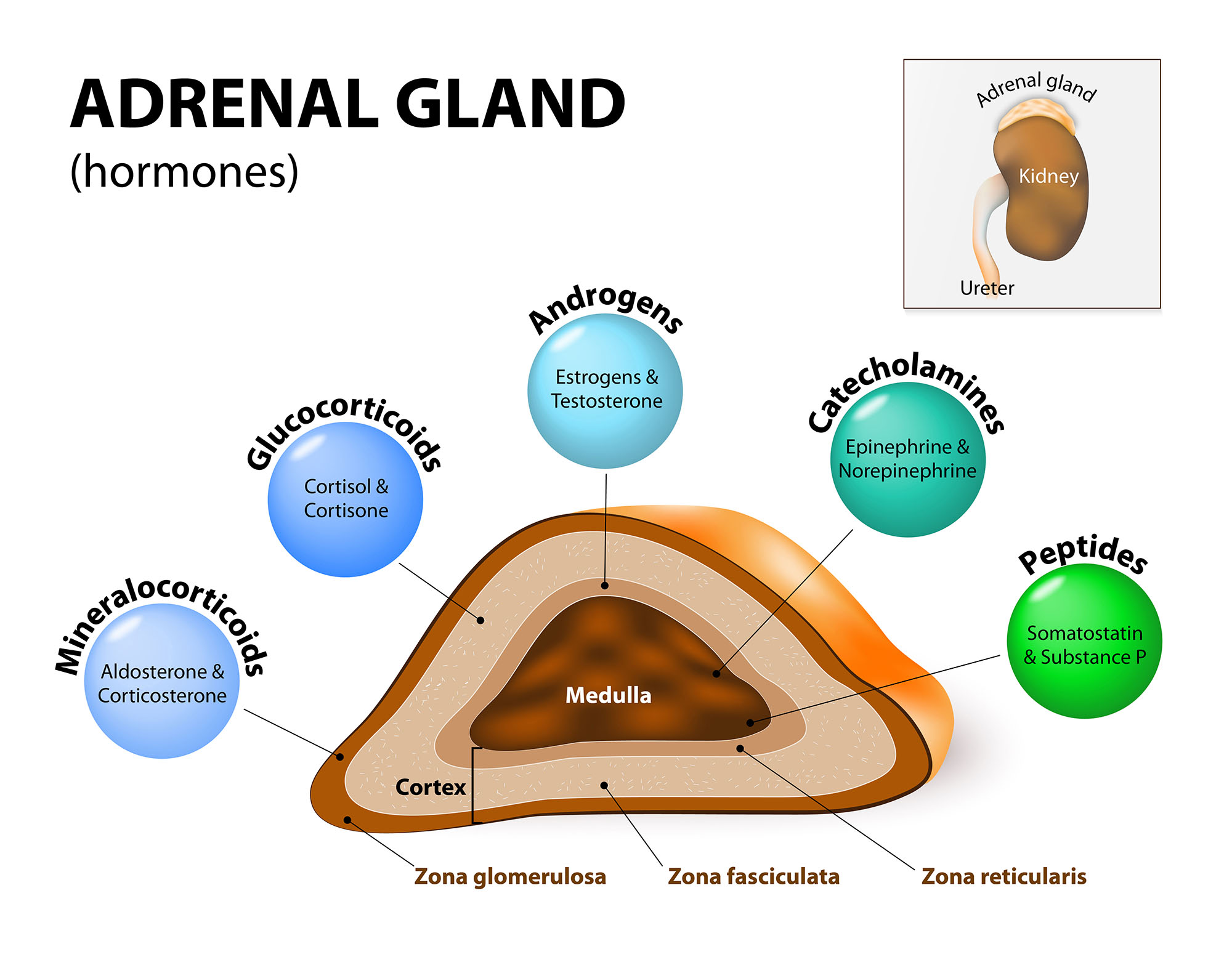
Stress

Stress Objectives
-
Explain what stress is, including examples of short-term and long-term stress events.
-
Describe the impacts of adrenaline (epinephrine) and cortisol on the body.
- List factors that can reduce the potential impacts of a stress response.

Stress has many meanings. In a medical sense it refers to a physiological response to external and/or internal cues.
People respond very differently to external variables. Some people will watch this spider and be distressed by the legs and movement; others will think it is adorable. Some of these responses are innate (genetically determined) and other are learned through experience.

Stress-inducing occurrences and our responses can be be positive. We may pay better attention, feel motivated, and get things done.
Unfortunately, stress responses can also be harmful, particularly if chronic and un-managed.
What are the endocrine organs that sit on top of each kidney? _____
Now we are going to see how these organs play a critical role in stress management.
This microscopic specimen helps in visualizing the difference between the adrenal cortex and the adrenal medulla.
We have all experienced an “adrenaline rush.” Re-live what it feels like.
Consider why these physiological responses would be significant in an actual emergency.

The stress response occurs along two pathways. In short-term stress, senses send information to the brain, and the brain sends a signal through the spine and nerves directly to the adrenal medulla. The adrenal medullar than releases ___, the “emergency” hormone.
In response to long-term stress like starvation or chronic bursts of short-term stress events, the hypothalamus triggers the pituitary gland to release a hormone that increases cortisol production in the adrenal cortex. High levels of cortisol can cause a negative feedback loop that reduces this stimulation by the hypothalamus. However, continual feedback “desensitizes” the hypothalamus’ response and cortisol keeps getting produced.


Cortisol has wide-reaching impacts on the body that would be helpful if an individual was facing starvation. Does cortisol increase or decrease overall metabolism? ___

In addition to cortisol and epinephrine, the adrenal glands release other important hormones. The mineralcorticoids and glucocorticoids mediate inflammation, a topic explored in the week 9 module.
Many people assume that stress leads to hypertension. It is not that straightforward. What is understood is that a balance of healthy behaviors correlate with lower incidence of hypertension.
Many factors are not under our control, but some are. Consider the impact of carving out a small corner of space intended to reduce stress-inducing triggers.
One of the external factors that contributes to stress is not having enough time to complete desired activities. There are natural times events like day/night and the seasons, but our perception of time can be creatively managed to a point.

When you do something you really enjoy, does it seem like time is moving faster or slower? How does it vary depending on the activity?
For this guide’s media assignment, you are monitoring some aspect of stress, and you could choose perception of time during different activities.
Start your 7A Media Piece Here
For this media piece, you are designing and carrying out a mini study of your own stress. This can be qualitative (finding variables) or quantitative (testing variables). If you are already monitoring stress as part of your body data collection plan, select a different aspect of stress to study. You are designing this mini study and turning in your procedure and results.
As always, exercise care and safety in all self-study procedures.

Possible examples of self-study of your own stress:
- Take an online stress survey and reflect on the results, as well as critiquing the quality of the survey.
- Try different activities and reflect on your perception of time during each activity.
- Monitor heart rate at different times of day related to different activities that may be stressful, including things like studying, Zooming a class, etc.
- Collect different people’s ideas about stress and write about how your most stressful events compare to other people’s events.
- Develop a space intended to reduce stressful triggers and monitor your response.
What you are turning in:
- A summary of your mini stress study including your procedure and why you chose this form of data collection.
- Your results from this short study, including the data you collected and your interpretation of the data. If part of the results feel too personal to share, you can leave that part out and indicate that you chose to do so.
Sometimes reflecting on stress can reveal concerns that were otherwise hidden. If you need assistance with stress management or simply a professional to weigh in, OSU’s CAPS program is available to all enrolled students.
The next section introduces metabolism, cellular activity within the body.

Check your knowledge. Can you:
-
explain what stress is, including examples of short-term and long-term stress events?
-
describe the impacts of adrenaline (epinephrine) and cortisol on the body?
- list factors that can reduce the potential impacts of a stress response?






